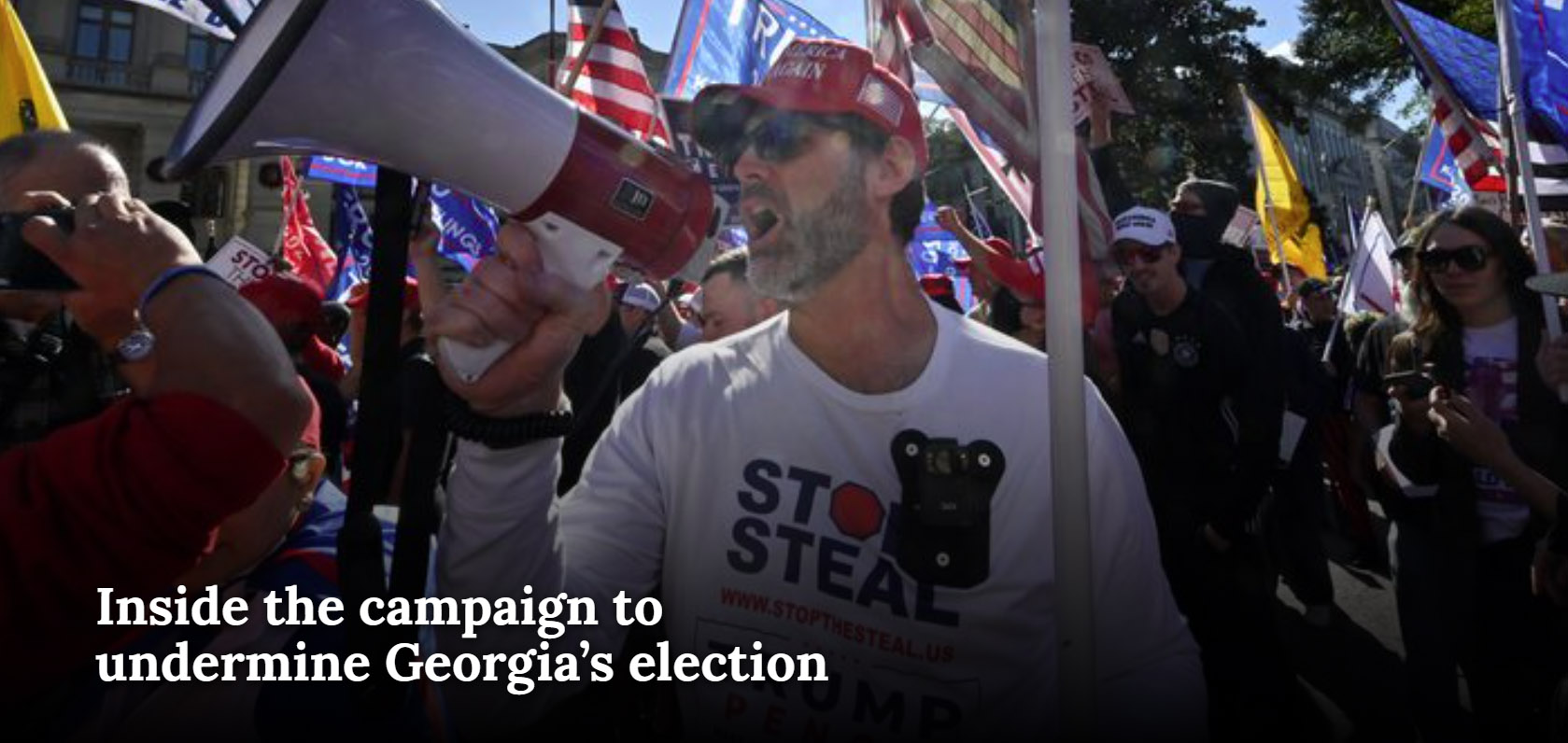Multiple advisers told Trump election fraud allegations in Georgia were false
WASHINGTON — Multiple members of then-President Donald Trump’s legal team and Republican officials at the state and federal level told him that claims of election fraud in Georgia and other states had no merit.
But he chose not to listen, went on to raise millions of dollars by spreading election lies and ultimately stirred up the crowd that breached the U.S. Capitol on Jan. 6, 2021, the committee investigating the deadly riot said during its second public hearing.
Former Atlanta-based U.S. Attorney Byung “BJay” Pak told the committee Monday that he investigated allegations of fraud after Georgia’s 2020 general election but found them all to be without merit. The most notable claim was made by Rudy Giuliani, an attorney for Trump, who said he had a “smoking gun” videotape of Fulton County workers pulling out a suitcase of fraudulent ballots during a late-night round of counting.
The video was not a smoking gun. Investigators from the secretary of state’s office reviewed all the footage and found nothing improper. The “suitcases” were regular ballot containers, and workers had counted the votes properly, investigators concluded.
Nonetheless, then-U.S. Attorney General Bill Barr requested that Pak prioritize investigating the claim so he would have solid facts to counter Giuliani’s narrative if the White House asked, Pak said during his brief testimony.
“The FBI interviewed the individuals that are depicted in the videos — reportedly they were double- (and) triple-counting ballots — and determined that nothing irregular happened in the counting and the allegations made by Mr. Giuliani were false,” Pak said.
Monday’s hearing was the latest evidence that events in Georgia will be featured prominently as the committee makes its case that Trump is responsible for the Jan. 6 attack. More hearings are scheduled for Wednesday, Thursday and next week, and among those expected to testify are Georgia Secretary of State Brad Raffensperger and his top deputy, Gabe Sterling.
In videotaped testimony Monday, Barr said he resigned partially because he had grown tired of Trump’s election disinformation. Barr noted that allegations in the movie “2000 Mules,” which claimed that surveillance video of Georgia voters showed them dropping off multiple ballots, were investigated by the state’s top law enforcement agency.
“The GBI was unimpressed with that, and I was totally unimpressed with it,” Barr said.
Related AJC coverage about Jan. 6 and the 2020 election
The officer who shared chilling memories at Jan. 6 hearing is a Georgia native
‘Stop the steal’ gets personal
Explainer: Hundreds charged with crimes in Capitol attack
Timeline: Campaign to undermine the Georgia 2020 election
AJC Special Report: Inside the campaign to undermine Georgia’s election
Atlanta Breakdown Podcast: The Trump Grand Jury’ Ep. 1: The Jan. 2 phone call
New details show Georgia Republicans’ actions on and before Jan. 6. attack
He said he was particularly disturbed by Trump and his allies’ persistent and false allegations that Dominion Voting Systems machines used in Georgia and other states allowed for fraudulent results.
The allegations were “made in such a sensational way that they obviously were influencing a lot of people, members of the public, that there was systemic corruption in the system and that their votes didn’t count and that these machines controlled by somebody else were actually determining it, which was complete nonsense,” Barr said. “And it was being laid out there, and I told them that it was crazy stuff and they were wasting their time and that it was doing grave, grave disservice to the country.”
The day after Barr had that conversation with Trump, the president released a video rehashing some of the very same claims, the committee noted.
Another Trump attorney, Alex Cannon, also said he reviewed allegations regarding Dominion machines and told Trump aide Peter Navarro the election was secure. Navarro responded by accusing Cannon of being an “agent of the deep state,” language used by adherents to the far-right QAnon conspiracy theory.
It was their last conversation, Cannon said.
The committee also said it had evidence that Trump raised some $250 million after the election by appealing to supporters to help him fight voting fraud. California U.S. Rep. Zoe Lofgren, a Democratic member of the panel who took the lead during Monday’s hearing, said most of the money raised did not go to election litigation. Instead, she said, it was funneled to a newly formed political committee that donated millions to organizations protesting the election results.
The hearing ended with video footage of people at “stop the steal” rallies on Jan. 6 or outside the Capitol that day repeating false claims of election fraud.





